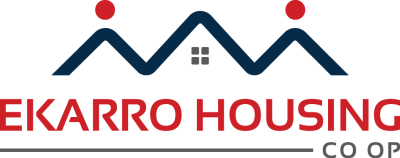The November newsletter will provide some useful information about debts and debts advice
In March 2012, total household debt stood at £1,518.5bn in today’s prices compared with £1,630.1bn in March 2017. So in the past five years household debt has increased by an inflation-adjusted rate of 7.3%.- The Guardian – https://goo.gl/pgmPUM
Personal debt levels are rising
“Debt advice agency -In 2016 the average unsecured debt of our clients increased for the first time in eight years. Our latest data shows this is a continuing trend in 2017. Our clients now have an average outstanding debt balance of £14,367” Step change- Free Debt Advice Agency
More renters are seeking advice
We are seeing fewer homeowners and an increased number of renters contacting us for advice and support with their problem debt. Our stats show that four out of five of our clients are now renters. 4 out of 5 of our clients are living in rent accommodation. If you are struggling with debts and rent arrears please read on.
What are priority debts?
Priority debts are those that carry the most serious consequences if you don’t pay them.
These don’t have to be the largest or debts with the most expensive interest rates, but if you don’t pay them it could lead to serious problems.
Priority debts include:
- Court fines
- Council Tax
- TV Licence
- Child maintenance
- Gas and electricity bills
- Income Tax, National Insurance and VAT
- Mortgage, rent and any loans secured against your home
- Hire purchase agreements, if what you’re buying with them is essential
Why you should pay off priority debts first
The consequences of not paying off priority debts could be:
- Being visited by bailiffs
- Receiving a court summons
- Having your heating or lighting cut off – due to unpaid bills
- Being made bankrupt – because you haven’t paid your bills
- Having your heating or lighting cut off – because you haven’t paid your bills
- Losing your home – because you’re not keeping up with mortgage or rent payments
What are non-priority debts?
The consequences of not paying non-priority debts are less serious. If you don’t pay non-priority debts, your creditor could eventually take you to court or instruct bailiffs to collect money from you.
Your non-priority debts include:
- Overdrafts
- Personal loans
- Banks or building society loans
- Money borrowed from friends or family
- Credit card, store card debts or payday loans
- Catalogue, home credit or in-store credit debts
Water and sewerage bills
Water and sewerage bills are treated as non-priority debts but you should include them as essential household outgoings. They are an ongoing service that you need to pay for.
If you don’t pay at least your current water and sewerage bills, the amount you owe will continue to go up.
How to pay off non-priority debts faster
You must pay at least the minimum payment on all debts to avoid falling behind. If you can afford to pay more, share out the extra cash in the following way to save money on interest costs and become debt free quicker.
Target the most expensive debt first
- Target the debt with the highest interest rate shown on your monthly statement or loan agreement first
- Check that you won’t be charged any penalty or default charges for overpaying
- Pay as much as you can afford without breaking the terms of other credit agreements you have
- Once you’ve cleared your most expensive debt, move on to overpaying on your next most expensive one
For more information go to link :
https://www.stepchange.org Step change
Step Change is a free debt advice service. They will provide a telephone debt advice service They will go through all your debts agree repayment mounts with your debtors and get you back on track
https://goo.gl/3g492S Money Advice Service
http://www.creditunion.co.uk/ Lambeth Credit Union
We would like to thank the Ekarro resident who provided much of this information for this newsletter and their fellow members
